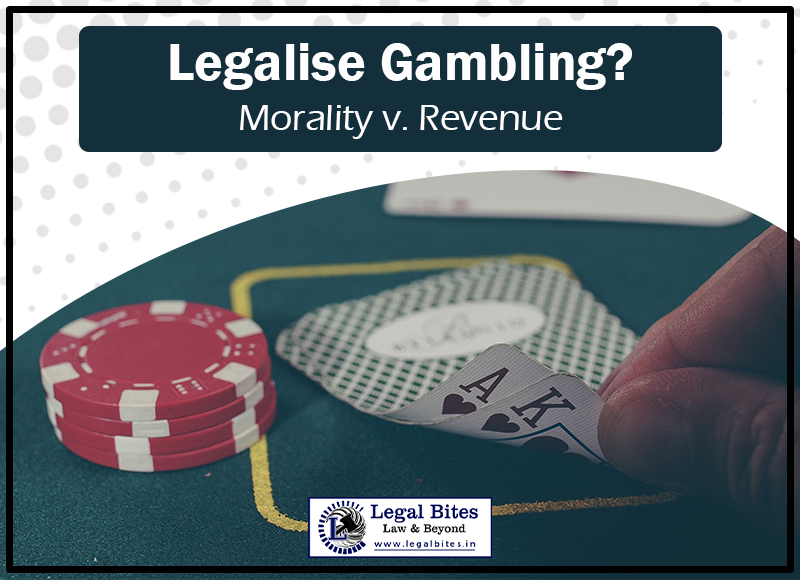Gambling Should Not Be Legalised
We should not be swayed by promises that money from legalized gambling will be earmarked for this or that particular program as we are told funding from the lottery goes to education. Here’s the thing: It should have been legal a long time ago. With all forms of online gambling continuing to explode in popularity, it makes no sense that sports betting in particular is singled out as if it is an especially immoral activity. Here are 7 reasons why it’s silly that sports betting isn’t legal. Everybody Does it Already.
- Benefits Of Legalized Gambling
- Why Should Gambling Be Legalized
- Legalized Gambling States
- Legalized Gambling Indiana
*Updated 2018
The Supreme Court recently reversed a 26-year-old federal ban on sports betting, enabling each state to decide whether to allow wagers to be placed on baseball, basketball, football, hockey, among other sports games. Previously, sports betting had been prohibited nationwide, except in four states – Delaware, Nevada, Montana and Oregon. A vast majority of the American people had supported the legalization of sports betting (55% felt that betting on sports should be legal, only 35% opposed), not to mention that the president himself is a former owner of casinos. Therefore, this change in the federal government’s approach to the subject is not surprising.
Here are three reasons why the legalization of sports betting is positive and three more explaining why its negative:
In Support of Legalized Sports Betting:
It is already a thriving industry.
The betting industry has blossomed regardless of its legality. Illegal sports betting is a multi-billion-dollar industry (some estimates are as high as $150 billion); anyone who wants to place a bet can do so easily online or through local office pools and offshore books. Now, after the Supreme Court decision, states will be more inclined to consider or pass legislation to legalize sports betting, thus allowing people to continue betting but in a regulated and fairer environment. It will also prevent them from dealing with questionable bookies. Moreover, addicts will have fewer stigmas, which may make it easier for them to seek help.
It`s the economy, stupid.
Sports betting is good for the economy. Legalizing sports betting will obviously create huge state tax revenues. More importantly, it has the potential to create jobs (estimated between 125,000-152,000 jobs) for the American people. Researchers estimate that legalized, regulated sports betting could actually bring in a total of $6 billion in annual revenue for states by 2023.
Moreover, it has potential to bring huge money into the United States and keep it there. Currently, most of the betting takes place online. It is more than likely that legalizing sports betting in America will trigger American telecommunications and tech companies to take over the international market.
Sports betting won’t corrupt the leagues.
Benefits Of Legalized Gambling

Louis Brandeis, an American lawyer and Associate Justice on the US Supreme Court, once said: “Sunlight is said to be the best of disinfectants; electric light the most efficient policeman…” Meaning, legalized sports betting will actually make it harder to fix games. This is because once legalized, sports betting will be monitored, and any irregular activity will be easily detected. It is easier to fix games in an un-monitored environment, in which money flows under the radar. Therefore, the common belief that legalizing sports betting will corrupt sports is wrong.
Against Legalized Sports Betting:
The house always wins.
Many of those who argued for the legalization of sports betting claimed that it’s more about skills than luck. They said that, much like stock trading, it’s about wittingly identifying opportunities and acting on them. But this assertion is wrong.
The human element has a huge impact on sports; often, the unexpected happens, which can affect everyone from team owners down to the last player. Even where skill may improve odds of winning, people who bet on sports may not always possess the deep understanding of statistics required to win. People usually bet on sports based on a hunch, not knowledge. Sports betting is not about skills and it’s not like stock trading; it’s gambling, and as in gambling, the house always wins.
Legalizing sports betting won’t make illegal betting disappear
The main reason people bet with bookies is not the lack of alternative but availability and, most importantly, the generous line of credit that bookies offer. Bettors don’t need to deposit money to bet with bookies, which makes it easier for them to bet with money they don’t have. This is also the main reason wagers get into troubling debt situations. Moreover, bookies will offer better margins and betting rates for their customers since they won’t pay taxes. Thus, legalizing sports betting won’t eliminate illegal betting and the problems that accompany it. For instance, increased opportunities to gamble on sports may increase the amount of gamblers, yet services to help gambling addicts will most likely not rise in parallel.
It will change American sports’ nature

Legalizing gambling on sports will gradually change American sports. As with everything that involves money, the sports industry will become even more commercialized than it is now. In a slow but consistent process, the focus of American sports will become betting rather than the game itself. Anyone who has ever gambled on a sporting event knows that once you place a bet, the focus of the game suddenly becomes money, not the game itself. And that’s not what sports is about.
Bottom line: The Supreme Court’s decision to overturn the federal ban on sports betting is reasonable, especially since it is already happening to a large extent, and states deserve to monetarily benefit from it. On the other hand, legalizing betting won’t eliminate illegal betting and will negatively change the nature of sporting events. Do you support the legalization of sports betting? Would you place a bet on your favorite team?
 With the huge popularity of online gambling, the national legalization of gambling in the United States has become a hotbutton issue for politicians. Though it is unlikely to ever be legalized at the federal level, the discussions of state level legalization are growing. Currently, in the USA, non-tribal gambling is legal in three locations – the State of Nevada; Atlantic City, New Jersey; and Detroit, Michigan. In addition to those land-based casinos, riverboat gambling is legal in some areas along the Mississippi River, and tribal casinos are authorized anywhere a Native American tribe holds land.
With the huge popularity of online gambling, the national legalization of gambling in the United States has become a hotbutton issue for politicians. Though it is unlikely to ever be legalized at the federal level, the discussions of state level legalization are growing. Currently, in the USA, non-tribal gambling is legal in three locations – the State of Nevada; Atlantic City, New Jersey; and Detroit, Michigan. In addition to those land-based casinos, riverboat gambling is legal in some areas along the Mississippi River, and tribal casinos are authorized anywhere a Native American tribe holds land. Arguments Against
Why Should Gambling Be Legalized
There are many arguments against gambling including the preferences of many religious groups and individuals who have moral reservations about gaming for money. Many of those are credible arguments against gaming, but they are not sound arguments against the legalization of gaming. Sound arguments against the legalization of gaming come from a more pragmatic perspective. For example- Gambling Attracts a 'Bad Element' In fact, in the 21st century, gambling establishments do not attract the so-called “bad element” that they did back in the days of Bugsy Siegel. Places like Atlantic City and the State of Nevada have strict regulation of professional gaming and the Internal Revenue Service monitors all gaming establishments for the flow of money in and out. It is true that anywhere there is a huge amount of money changing hands, there will be an element that tries to get its hands on it illicitly, but in the locations in the USA where gambling is legal, it is easier to rob a bank than to cheat a casino.
- Gambling Addiction is a Huge Problem Gambling addiction truly is a huge problem, causing sufferers to lose money that should be earmarked for the mortgage and for care of their families. Gambling addicts, however, will invariably find places to lose their money, legal or not, and the big gaming establishments put millions of dollars into programs to help problem gamblers. The legalization of gambling, in fact, ends up helping problem gamblers more than hurting them.
- Casinos and Other Gambling Establishments Ruin a City There is a feeling among many people that once gambling is legalized, their town will suddenly look like Las Vegas with towers and glitz on every street corner. That, however, is not the case. In many small communities in the State of Nevada, for example, there are small, elegant casinos and card rooms that would be overlooked if one were not seeking them. The form that casinos take can be entirely regulated by city ordinance.
- Legalized Gambling Will Cut Into Tribal Revenues This is an ever growing concern. Since 1979 Native American tribes have been allowed to build casinos anywhere, whether gaming is legal in the community or not. As a result, the Native American community has a virtual monopoly on gambling most places in the United States. These so-called Indian Casinos are taxed at a lower rate than traditional establishments and the regulation upon them is minimal as compared to the state regulated facilities found in Nevada and Atlantic City. Furthermore, in a democratically guided republic such as the United States, it is entirely inappropriate that, despite the fact that a community has voted to restrict gambling, a protected group can come in and provide gambling, contrary to popular opinion. The only way to combat that is to legalize private gambling, allowing the huge revenues of gaming establishments to flow to the community at large.
Arguments in Favor

Legalized Gambling States
- Gambling Stimulates the Economy Healthy, well-regulated gambling attracts players with money. True, a good portion of that money flows into the casino, but a good portion of it flows to restaurants, stores and local services too. One casino can change the fortunes of a failing community.
- Gambling Increases Local Revenues In addition to the general stimulus to the economy, gambling institutions are taxed at high rates, and those taxes go into state and local coffers. Based on personal experience, it is easy to tell when a driver gets to the Nevada state line on the major highways that go from California east – the roads suddenly become fresh and new and the potholes that are common on California highways disappear. This is entirely due to the fact that the thriving Nevada casinos are taxed heavily so that the community does not have to bear the burden of keeping the roads fresh.
- Some Form of Gambling is Legal Most Places While the full casino experience is not legal, most places in the US allow dog and/or horse track betting as well as card rooms and the lottery. These forms of gambling should not receive preferential treatment over casinos.
- Gambling is Fun Players in most of the USA have to travel long distances to get to a legal gaming institution, and that is not fair to them. Most people enjoy putting a quarter in the slot or sitting down to a few hands of cards, and they should not be restricted from doing so just because they live a thousand miles from the nearest casino. There is nothing in the constitution of the United States that addresses gambling – restrictions are purely local prejudice, and, in the enlightened 21st century, it is time for that prejudice to stop.